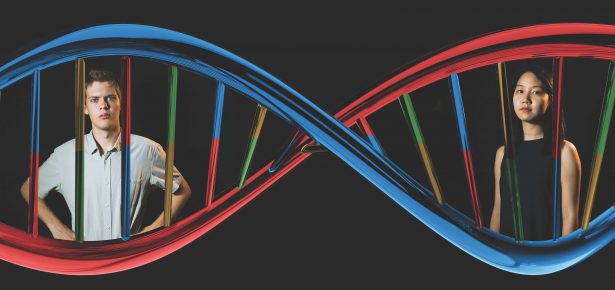
The term ‘slaves’ has taken on fresh and emotive resonances during the year 2020. Such resonances were far from my mind when choosing the title of this book – Are We Slaves to Our Genes? – a few years ago. Much more in mind was the influential place now being given in our daily speech to ‘gene language’ in general, and ‘DNA language’ in particular. “It’s in his/her DNA” or “in our organisation’s DNA” permeates popular language to highlight some supposedly unchanging feature of that person or organisation’s characteristics. The media can still not resist publishing some new genetic discovery as revealing the gene “for” this, that or the other.
The bad old days of strict genetic determinism, so dominant in the early decades of the last century, are now thankfully no longer with us. But instead we have an insidious, back-door, kind of influence, absorbed more by cultural osmosis than by explicit espousal. As the science of genomics speeds ahead, so the net seems to be closing on our own delusional capability to map out our own path of life in a way that seems genuinely free.
The science of behavioural genetics seems especially open to such misinterpretations. We read that the heritability of educational attainment is “57% for university exam achievement in a UK population” and wonder what it all means. Our parents never went to university. We share roughly 50% of our genes from each parent. So does that mean we shouldn’t even attempt university entry? Maybe pursue some less academic kind of work?
All this is relevant to the announcement by Stephen Hsu, senior vice-president of research at Michigan State University and CEO of the company Genome Prediction, that during IVF it would soon be possible to rank embryos according to their relative genome scores for IQ and then implant just the embryos with the highest scores.
The issues are with us all and at a very practical level. Time was when genetics was looked on as an esoteric subject for specialists only. But now we all need to have a basic grasp of the science so that we can interpret the latest discoveries carefully and critically. The field of genetics has had some sad periods in its history when the science has been used ideologically, not least in eugenics, and a careful understanding of the science can provide a powerful start in helping to protect it from such abuse.
I wrote Are We Slaves to Our Genes? for the general reader who may have no particular background in genetics. My aim is not to oppose the science in any way – I have spent a lifetime in researching the functions of genes and the products they encode. It’s the interpretation of the science that’s the key. The book’s aim is to see how genetic information is integrated with myriad other inputs to generate the complex creatures that we are. In the context of human behaviours, genes are not determinants (with rate exceptions) but ‘difference makers’. A range of human traits are surveyed to see how big those differences might be when studied at the population level. That investigation takes us into mental health, educational attainment, intelligence, personality, body size and shape, religiosity, political commitment and sexual orientation, to name but a few human traits that we care about.
But aside from certain sad and rare syndromes which belong to medical genetics, we really find nothing that supports behavioural genetic determinism. Rather the opposite, it is precisely our human genome, it is argued, that leads during early development to creatures who do have free will, and therefore moral responsibility. More than that, our different world-views influence our contrasting behaviours in profound ways, far more extensive in scope than the differences influenced by our genetic variation.
So the latest science shows that we are not slaves to our genes. Instead it is our particular human genomes that guarantee our freedom, and with that comes the moral responsibility to combat all other forms of slavery.
Latest Comments
Have your say!